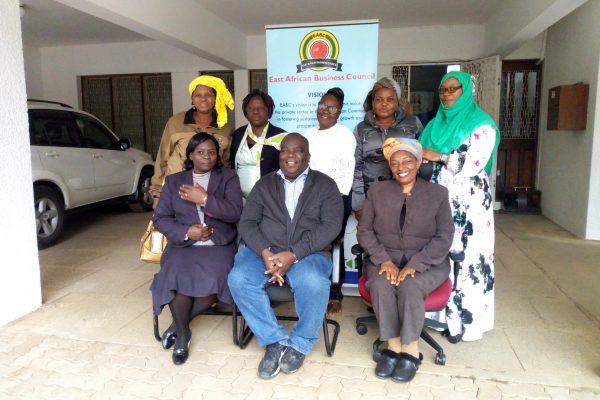
My experience with the Mano River Union Secretariat, especially working with women cross-border traders; has clearly brought to the fore the numerous challenges women entrepreneurs in Sierra Leone face. Their literacy levels are low. They lack business and technical skills and their access to business development support and to financial services remains limited. They can only remotely reach out to profitable markets, even those from neighboring countries which are members of the Mano River Union (Liberia, Guinea and Ivory Coast). Hence, it was important for the Mano River secretariat to link them up with the East African Community (EAC) women cross traders who had faced and addressed similar challenges. A simplified guide on customs tariffs and immigration procedures had been developed in East Africa to support cross-border trading. I am happy to be able to promote this guide in the Mano River region, and now in the Global South-South Expo in New York¨!
The EAC approach has been adapted and replicated in the MRU space. The MRU Secretariat has initiated a pilot experience in Sierra Leone with member countries of the MRU and intends to progressively add the other Member States of the Economic Community of West African States (ECOWAS) to the initiative. In my view, supporting cross-learning initiatives can be very rewarding
MRU officials and women cross-border traders from the MRU Member States initiated their work with a study tour in Arusha, Tanzania, where the secretariat of EAC is located and also with a visit to the nearby Namangan One Stop Border Post. The MRU Team was pleased to listen to the women entrepreneurs in Tanzania on how they were managing their cross-border trade and initiating their network.
EAC had developed a guide used by women entrepreneurs called “Simplified Guide for Micro and Small-Scale Women Cross Border Traders and Service Providers within the East African Community” (Simplified Guide for short). It was developed looking at the social, economic and legal context of the cross-border trade in Africa. Replicating such a guide implies conducting a contextual analysis of the situation of the women trader from MRU. ILO and experts from East African Women in Business Platform (EAWIB Platform) were able to support the MRU in this undertaking. As a result, more countries are engaged in South-South and triangular cooperation using various tools of communication and training including mobile apps which are more handy and useful than a printed booklet and information sessions on trade rules and regulations for women cross-border traders.
The ILO contributed to the pilot at its different stages. ILO provided information on the economic, legal and social constraints of cross-border trade, advised on how to better formalize it and helped build the capacity of women engaged in cross-border traders, especially on the use of the guide. It helped promote access to a wide range of adapted financial services. In doing so, it helped consolidate and reinforce what other development actors are currently doing. This will open the path to new and greater technical and financial partnerships with other stakeholders. The project is intended to foster South-South and Triangular Cooperation between the East African Community and the MRU in collaboration with the ILO and takes three key issues into consideration namely: Migration, the Fragile States and Regional Economic Communities (RECs).
After the first stage of this process, the networks and knowledge exchange between MRU and their Eastern African counterparts shall integrate. One possibility is to develop Shea Butter business in the MRU space. Women cross-border traders in the EAC have a structured and viable entrepreneurial approach which could be easily transferred and adapted to the MRU women cross-border traders way of doing business. The women are eagerly looking forward to the finalized version of the Simplified Guide in the MRU context. I am very excited to be part of this project having worked a lot with deprived communities especially on Women’s empowerment with various organizations including ILO, UNFPA, and OXFAM as Community Team Leader working with Women and Girls’ Health and Livelihood promotion. I believe Women’s Economic Empowerment is the ultimate goal of this initiative!
Ms. Nyaibor Ngombu has over 20 years’ experience in Programme Management and is currently the Senior Programme Officer responsible for Health, Gender and Capacity Building at
the Mano River Union (MRU) Secretariat with a background in Public Health and Public Administration.

